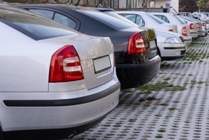
Small companies in the UK expected their fleet size to increase by 10% this year, according to Arval, the fleet provider arm of BNP Paribas.
The figures, from Arval’s corporate vehicle observatory survey, interviewed 3,634 European fleet managers in the first quarter of 2013 on views of their fleet needs this year.
Medium companies (those with between 10 and 99 employees) were more confident than small companies. In the UK 20% said they thought the size of their fleet would increase, up from 15%, while 8% of European companies were positive, down from 11% in 2013.
The gap between the UK and mainland Europe was closest for large companies (between 100 and 999 employees). In the UK 13% felt their fleets would grow, down from 19% in 2013, compared to 11% in mainland Europe, up from 10% in 2013.
Corporations (those with over 1000 employees) were the most confident about the future. The UK saw a jump in confidence in this sector, growing from 9% to 31%. For mainland Europe the jump was smaller, but still grew from 10% in 2013 to 15% in 2014.
Fleet Characteristics
How well do you really know your competitors?
Access the most comprehensive Company Profiles on the market, powered by GlobalData. Save hours of research. Gain competitive edge.

Thank you!
Your download email will arrive shortly
Not ready to buy yet? Download a free sample
We are confident about the unique quality of our Company Profiles. However, we want you to make the most beneficial decision for your business, so we offer a free sample that you can download by submitting the below form
By GlobalDataAll company sizes saw the average duration of usage, or how long they intended to keep cars on fleet, for passenger cars increase on balance, notably for corporations. There 30% said they saw duration of usage increase, compared to 21% in 2013, and just 3% said duration had decreased, compared to 7% in 2013.
35% of corporations saw duration of usage rise for light commercial vehicles, which was a marked contrast to small companies, where 16% said they saw an increase, compared to 21% where duration declined.
Financing
There was a greater discrepancy between the various company sizes over their main motivation for developing operating leasing. For small companies budget control was by far the most popular reason, selected by 45% of small companies. Fixed monthly costs and reducing fleet administration tasks were the second and third most popular responses from companies of this size, selected by 28 and 19% of respondents respectively.
In contrast, 40% of medium sized companies selected fixed monthly costs as the most important reason for developing operating leasing. The second most popular reason for companies of this size, that car servicing is included, was selected by 21% of respondents of medium companies, in contrast to small companies, of which 0% selected this option.
Budget control and a reduction in fleet administration were the joint third most popular choice for medium companies, with 12% each.
As with small companies, large companies’ budget control was the most popular option followed by fixed monthly costs with fleet administration reductions coming in third, at 30%, 16% and 14% respectively.
Similarly budget control was also the popular reason with corporation at 22%, however this was only slightly above a reduction of fleet administrative tasks, at 20%, and fixed monthly costs, at 18%.
Full control was the most popular reason for outright purchases among all company sizes. For small companies though it was only 1% ahead of the option ‘best provider for each service,’ which was selected by 43% of respondents in this category.
A full report and feedback with Arval will be included in October’s issue of Leasing Life.







